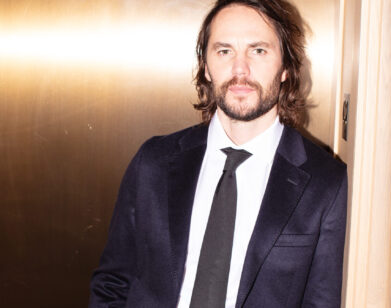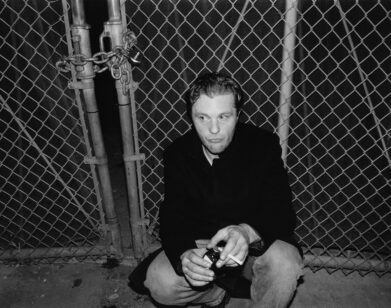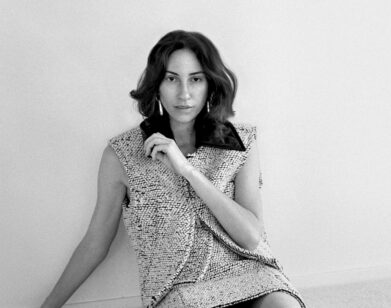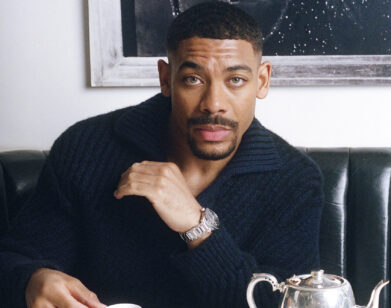Hadas Yaron, from Void to Verge
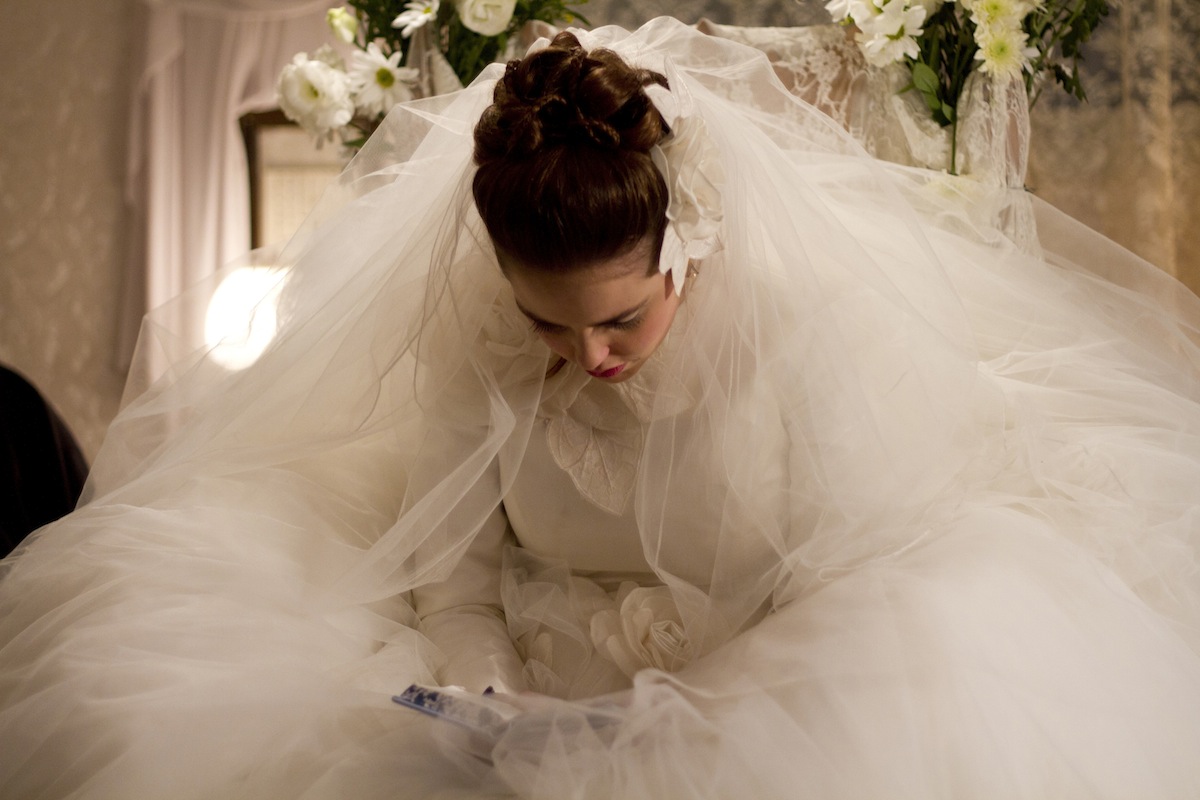
ABOVE: HADAS YARON IN FILL THE VOID.
Hadas Yaron, who won Best Actress for her role in Fill the Void at the Awards of the Israeli Film Academy and the Venice Film Festival in 2012, is still adjusting to her newfound fame. “There was a lot of noise in Israel about the film, so sometimes when I met people in the street they’d recognize me and tell me: ‘I came to the coffee shop [where Yaron was working] and looked for you!'” Yaron may find it strange that people she doesn’t know are so interested in her, but it only makes sense—Fill the Void, as Israel’s official submission for the best foreign language film of 2012, scooped up 12 awards internationally.
The film is the first feature from writer/director Rama Burshtein, a New-York born woman who became an ultra-Orthodox Jew and has lived in Israel for her adult life. Rather than focus on the religious-secular dialogue (the characters are part of the Orthodox community in secular Tel Aviv), Fill the Void is a slice of life in the Hasidic world. It does, however, tell a story that viewers may find controversial: 18-year old Shira (Haron) is excited to begin the process of a quasi-arranged marriage. (As it’s done in Hasidic circles, families arrange look-sees and meetings, but the brides and grooms-to-be can choose whether they’d like to marry potential partners.) But her girlish excitement is threatened when her 28-year-old sister Esther dies in childbirth. Concerned about the possibility of Esther’s husband Yochay remarrying a woman in Belgium and taking her grandchild with him, Shira’s mother puts out the idea of Shira marrying Yochay. What ensues is a complicated coming-of-age tale and star-making vehicle for Haron, as her nuanced performance brings a quiet depth to Shira.
In addition to her acting prowess, this up-and-comer is, for lack of a better word, cool—really cool. We had a laughter-filled conversation about tap-dancing secret dreams, bad waitressing, and lying to an army commander.
CASSIE TITLE: So, this was your first lead in a feature and you got two Best Actress awards. It seems like you came out of nowhere, but I know that you studied acting.
HADAS YARON: I did my first role when I was 14, 14 and a half.
TITLE: You were the “young” somebody, right?
YARON: Yeah, I was the flashbacks.
TITLE: I stalked you on IMDb.
YARON: [laughs] Afterwards, I just went to study. I was 15 and went to high school. I did this art school high school. It was three years of drama and theater.
TITLE: Do you sing, too?
YARON: I want to sing, because I love musicals, and I want to be a tap dancer. [laughs sheepishly] But I’m still working on that. It’s one of my biggest, secret dreams. [laughs]
TITLE: Well, we’re gonna tell people. Is that okay?
YARON: [laughs] Yeah. But you asked me if I sing. I can sing, but I need to do some vocal stuff.
TITLE: I used to act and sing when I was little, but now I’m awful.
YARON: [sing-speaks] Sing me a song!
TITLE: [laughs] No!
YARON: [mischievously] Later…
TITLE: [laughs] How was the army?
YARON: It was difficult, but only because I was going through a difficult time. Because you’re far away from home. I wasn’t doing anything militant. I was a teacher-soldier. I was in boarding schools, so I was working with kids. You live with them for the whole period and only go back on Saturdays once in two weeks. Kids are difficult, and I was practically a kid—I was 18 and 19. There was also theater for soldiers. But I finished high school and said: [in a low, joking voice] “I want to be a soldier.” I just didn’t see the connection of doing theater in the army.
TITLE: Did you know you’d pursue acting afterwards?
YARON: Yes. In the army, you just wait for the army to end for life to begin. So I kept waiting. I was like: “I’m gonna be an actress!” But I didn’t know how, and I always had fears from that. I got lucky, because [Fill the Void] was the only audition I went to during the army. And then came this part and I had to lie to my commander. I told her I had a doctor’s appointment and then I came late every time I had an audition. I had five auditions.
TITLE: I read that you were working at a café during the Venice Film Festival, and that you had to keep going back and forth.
YARON: Yeah, but they mixed it up. I took the week off; I told the café manager I wouldn’t be at work because I had to be in Venice. I wasn’t working on the Friday I came back. Then they called me up to invite me back to Venice [to accept her award]. But I wasn’t at a shift at the coffee shop. They were lying. [laughs]
TITLE: The Times of Israel interviewed your boss and he said you were klutzy. [laughs]
YARON: And that is not true! [laughs] He’s actually a very funny dude. He said: “I told them 10 minutes of the best things about you and then they said: ‘Tell me, does she spill the coffee?'” And he said, [jokingly] “Yeah, all the time!” But the thing is, I am a bad waitress! But this was the only place I felt that I was good! And then they do this!
TITLE: [laughs] Let’s talk about the film. There’s a moment when Shira is so attracted to her first potential match, and it’s hysterical because he’s doing the weirdest things, like tugging his peyos and wiping his glasses.
YARON: He’s so clumsy and weird! Like Shira, he was supposed to go and look to see if she’s attractive.
TITLE: Which is clever. She’s in a supermarket, and she’s shopping for men.
YARON: [laughs] I wasn’t thinking about that!
TITLE: How did you inhabit this Orthodox character? I know Rama said she wrote this story because she met a girl who married her sister’s widower. Did you talk with girls like that to prepare?
YARON: I actually didn’t! But I remember I really wanted to. But I talked to Rama all the time. She talked to all these girls—17 girls that married their late sisters’ husbands. She said that she was so overwhelmed that when she started talking to all these women, she had to really explore how you make that transition. And then at the end of her research, she was feeling like it was so natural to marry your sister’s husband. There’s something there. And then afterwards she decided to make a film out of it.
TITLE: I know you called it a love story. I was wondering what you thought the moment Shira falls for Yochay is. There’s that great scene where you guys are nose to nose and almost touching.
YARON: I think that was a moment when she started to feel it. If it was a secular film, that would be a kiss scene. She never saw movies like Bridget Jones’s Diary; she doesn’t know how people kiss or how they make love or anything. But I think in that moment she felt it in her body—she wants him. She’s ready. And actually a lot of people see it a very different way. Sometimes people think she is a victim of this whole family pressure.
TITLE: Well, I got that it wasn’t supposed to be like that, because there’s a big deal about choice. But it was also made because of the way she was brought up to be this obedient daughter in this society. I felt like she didn’t think she had a choice, but that was okay, because it was the choice she thought was right.
YARON: It was difficult for her because there was pressure, but I don’t think she felt like she was being pressured in a way that she couldn’t handle. I think she couldn’t handle her emotions and couldn’t understand what she was feeling. You asked me where I thought the love started, so the first time she feels it is in the matching scene when they meet for the first time to talk if they’re going to get married. And then he tells her she’s beautiful.
TITLE: But she ruins it and asks him why he won’t marry Frieda. I get that it was supposed to be this true feeling, but that last shot of you in the wedding dress…
YARON: Confused you?
TITLE: I felt like one could interpret it as this girl doesn’t want to get married, even though I knew that Rama wanted it to be known that the character did want to get married. It was charged. I knew that the text of the film pointed to her genuinely falling in love, but that shot made me feel like she was a victim. There was a lot of emotion in that shot.
YARON: There is a lot of emotion in that shot. She’s scared because she doesn’t know how love works, and happy, and sad. And then something about it; people are like, oh, this is so erotic. [laughs]
TITLE: It is erotic! Isn’t it interesting that it’s so erotic while she’s so clothed?
YARON: That’s the most erotic thing.
FILL THE VOID OPENS IN THEATERS ON MAY 24.

